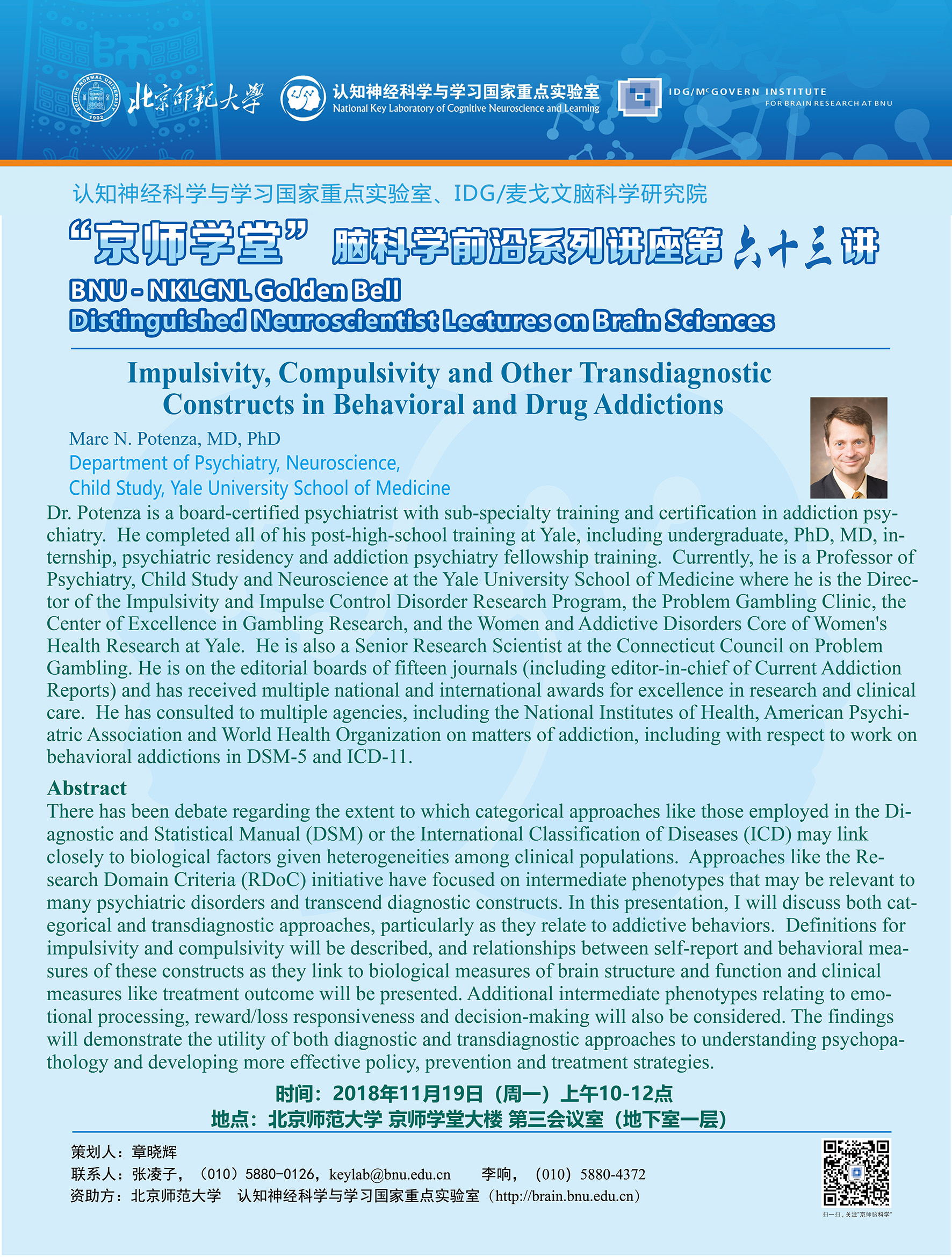Impulsivity, Compulsivity and Other Transdiagnostic Constructs in Behavioral and Drug Addictions
行为成瘾和药物成瘾冲动性、强迫性和其他跨诊断成分
报告人:Marc N. Potenza, MD, PhD
Department of Psychiatry, Neuroscience,
Child Study, Yale University School of Medicine
报告时间:2018年11月19日 上午10:00-12:00
报告地点:北京师范大学京师学堂第三会议室
报告人简介:
Dr. Potenza is a board-certified psychiatrist with sub-specialty training and certification in addiction psychiatry. He completed all of his post-high-school training at Yale, including undergraduate, PhD, MD, internship, psychiatric residency and addiction psychiatry fellowship training. Currently, he is a Professor of Psychiatry, Child Study and Neuroscience at the Yale University School of Medicine where he is the Director of the Impulsivity and Impulse Control Disorder Research Program, the Problem Gambling Clinic, the Center of Excellence in Gambling Research, and the Women and Addictive Disorders Core of Women's Health Research at Yale. He is also a Senior Research Scientist at the Connecticut Council on Problem Gambling. He is on the editorial boards of fifteen journals (including editor-in-chief of Current Addiction Reports) and has received multiple national and international awards for excellence in research and clinical care. He has consulted to multiple agencies, including the National Institutes of Health, American Psychiatric Association and World Health Organization on matters of addiction, including with respect to work on behavioral addictions in DSM-5 and ICD-11.
报告摘要:
There has been debate regarding the extent to which categorical approaches like those employed in the Diagnostic and Statistical Manual (DSM) or the International Classification of Diseases (ICD) may link closely to biological factors given heterogeneities among clinical populations. Approaches like the Research Domain Criteria (RDoC) initiative have focused on intermediate phenotypes that may be relevant to many psychiatric disorders and transcend diagnostic constructs. In this presentation, I will discuss both categorical and transdiagnostic approaches, particularly as they relate to addictive behaviors. Definitions for impulsivity and compulsivity will be described, and relationships between self-report and behavioral measures of these constructs as they link to biological measures of brain structure and function and clinical measures like treatment outcome will be presented. Additional intermediate phenotypes relating to emotional processing, reward/loss responsiveness and decision-making will also be considered. The findings will demonstrate the utility of both diagnostic and transdiagnostic approaches to understanding psychopathology and developing more effective policy, prevention and treatment strategies.
